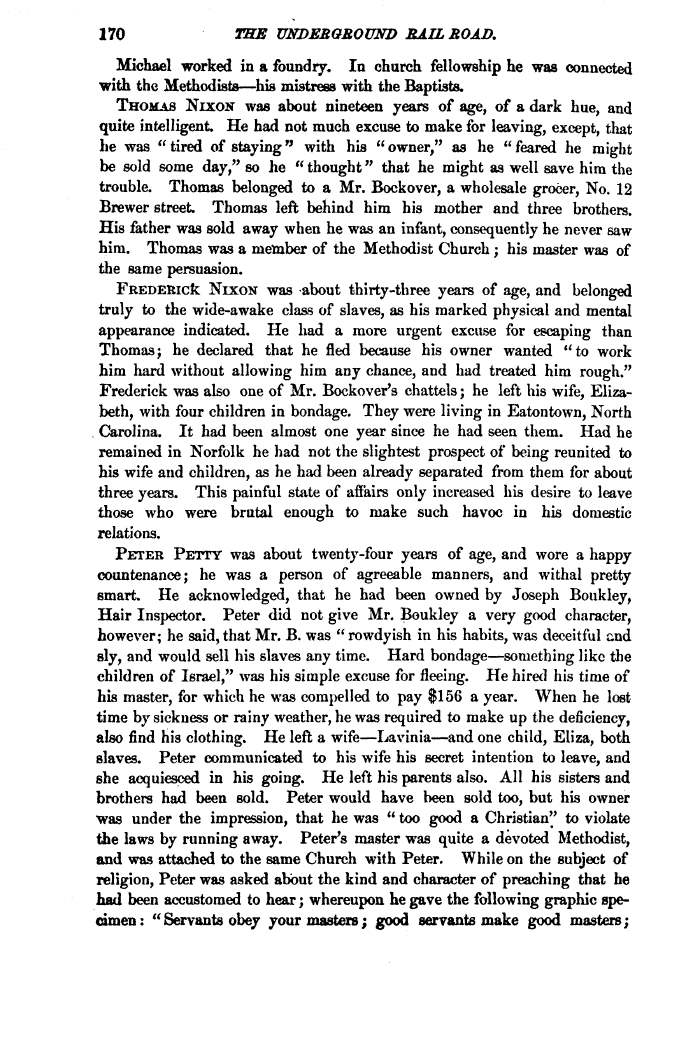 |
||||
 |
||||
| 170 TSE UNDERGROUND RAILROAD. Michael worked in a foundry. la church fellowship he was connected with the Methodists—his mistress with the Baptists. THOMAS NIXON was about nineteen years of age, of a dark hue, and quite intelligent. He had not much excuse to make for leaving, except, that he was "tired of staying" with his "owner," as he "feared he might be sold some day," so he " thought" that he might as well save him the trouble. Thomas belonged to a Mr. Bockover, a wholesale grocer, No. 12 Brewer street Thomas left behind him his mother and three brothers. His father was sold away when he was an infant, consequently he never saw him. Thomas was a member of the Methodist Church ; his master was of the same persuasion. FREDERICK NIXON was about thirty-three years of age, and belonged truly to the wide-awake class of slaves, as his marked physical and mental appearance indicated. He had a more urgent excuse for escaping than Thomas j he declared that he fled because his owner wanted "to work him hard without allowing him any chance, and had treated him rough." Frederick was also one of Mr. Bockover's chattels; he left his wife, Elizabeth, with four children in bondage. They were living in Eatontown, North Carolina. It had been almost one year since he had seen them. Had he remained in Norfolk he had not the slightest prospect of being reunited to his wife and children, as he had been already separated from them for about three years. This painful state of affairs only increased his desire to leave those who were brutal enough to make such havoc in his domestic relations. PETER PETTY was about twenty-four years of age, and wore a happy countenance; he was a person of agreeable manners, and withal pretty smart. He acknowledged, that he had been owned by Joseph Boukley, Hair Inspector. Peter did not give Mr. Boukley a very good character, however; he said, that Mr. B. was "rowdyish in his habits, was deceitful and sly, and would sell his slaves any time. Hard bondage—something like the children of Israel," was his simple excuse for fleeing. He hired his time of his master, for which he was compelled to pay $156 a year. When he lost time by sickness or rainy weather, he was required to make up the deficiency, also find his clothing. He left a wife—Lavinia—and one child, Eliza, both slaves. Peter communicated to his wife his secret intention to leave, and she acquiesced in his going. He left his parents also. All his sisters and brothers had been sold. Peter would have been sold too, but his owner was under the impression, that he was " too good a Christian" to violate the laws by running away. Peter's master was quite a devoted Methodist, and was attached to the same Church with Peter. While on the subject of religion, Peter was asked about the kind and character of preaching that he had been accustomed to hear; whereupon he gave the following graphic specimen: "Servants obey jour masters; good servants make good masters; |